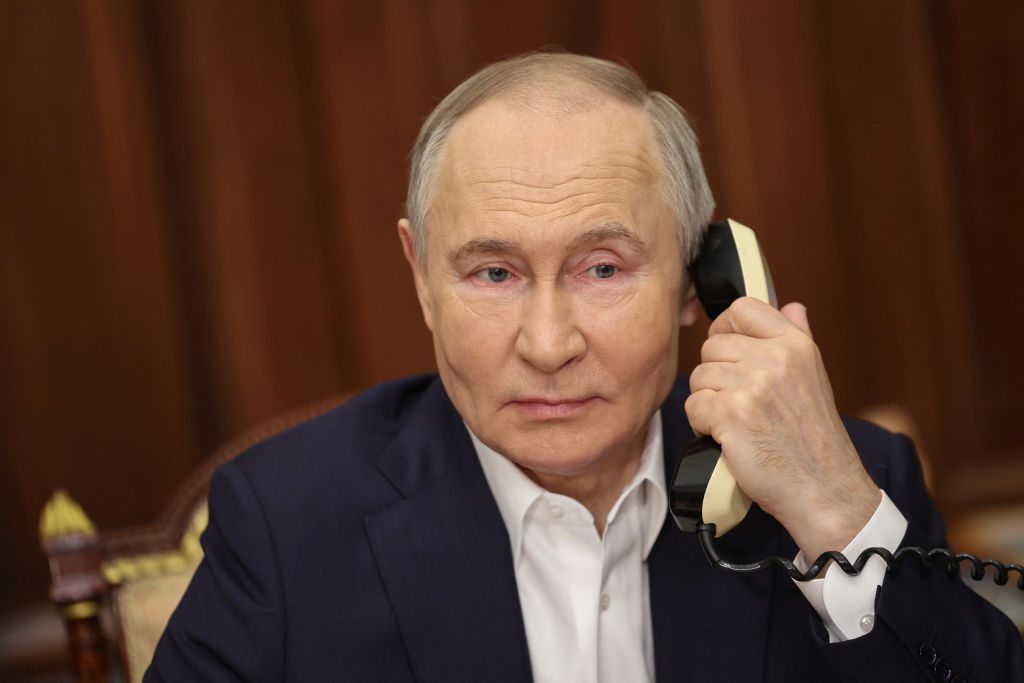A Ukrainian Air Force officer has been arrested for allegedly spying for Russia, accused of leaking the locations and flight schedules of fighter jets. Meanwhile, a soldier has reportedly been selling units’ positions to cover his gambling debts. These are just the latest in a growing series of internal breaches. Earlier this month, Kyiv detained a lieutenant-colonel in the Ukrainian armed forces — who also held the rank of general in Russia’s FSB — for passing intelligence about troop deployments in the Sumy region. In May, authorities uncovered a mole inside a defence plant, as well as a soldier in Kharkiv who had been reporting on military movements. These arrests reflect a much deeper problem. Last year, Ukrainian Security Service (SBU) chief Vasyl Maliuk admitted that 47 Russian agent networks were exposed in 2023, and 46 more in 2024. Among them, he said, were not only infiltrators but sitting lawmakers and active-duty servicemen working for Moscow.
So why is Russia enjoying such success in convincing Ukrainians to spy for the enemy? For one thing, Kremlin spooks are experienced operators in the country, benefitting from longstanding networks. According to Maliuk, Russia had been “secretly infiltrating” Ukraine and recruiting assets for decades before the invasion. Now, it can leverage its military presence to identify collaborators eager to ingratiate themselves with their new masters. Crimea-based hacking group Gamaredon is believed to work for the FSB and consists of Ukrainians who switched sides, including former employees of the country’s security services. A soldier’s FSB handler had earlier defected from Ukrainian law enforcement himself.
Turncoats bring not only insider information, but also contacts. A Ukrainian Air Force colonel suspected of supplying intel was recruited by his wife, a collaborator living in occupied Melitopol. Using these kinds of personal connections, Russia’s Ukrainian agents have been contacting frontline soldiers and asking probing questions, with troops unwittingly giving away information. One high-ranking officer chatted with his network of ex-comrades to get military secrets for the Russians. Moscow has additionally been targeting Ukrainians with relatives who are either prisoners of war or residents of the occupied territories, knowing they are willing to do whatever Russia demands in the hope of saving their loved ones.
Yet Moscow has no shortage of strings to pull in making its puppets dance. Each tug is driven by a different motive, as a range of incentives and pressures compel some Ukrainians to become spies for Russia. Besides the standard blackmail and financial recompense, Moscow has been scouring social media platforms for Ukrainians expressing pro-Russia views or those whose loyalties are split due to roots or relatives in Russia. Kremlin spies have exploited Kyiv’s struggles with military desertion, with the largest dismantled spy network composed of fleeing soldiers evading Ukrainian authorities.
However, espionage is not an adventure but a weapon. Hackers have repeatedly hit Ukraine’s critical infrastructure facilities as part of Russia’s broader bid to degrade civilian morale. Efforts have focused on extracting information of particular use on land, such as firing positions and troop movements, and in the air, including the locations of F-16s, airfields, logistics hubs and maintenance centres for combat aircraft.
Ukraine is likely still assessing the full extent of the damage caused by known infiltrators, let alone the harm still being inflicted by undetected agents. Even so, signs from the battlefield indicate that traitors may have had a significant impact. A soldier in Kharkiv was directing Russian airstrikes and heavy artillery towards his own unit, which was holding back Moscow’s advances, and Russia believed his information could enable a later “breakthrough”. That is before one considers the impact on Kyiv’s operations. In November, a lieutenant-colonel with access to highly confidential intel was arrested for giving Moscow details about Ukraine’s sabotage and reconnaissance missions in Kherson, Crimea and Zaporizhzhia so that Russia could “neutralise” those Ukrainian special forces.
Last year, Maliuk offered reassurance that his agency’s efforts were “yielding results”. He added: “We have purged enemy agents in all spheres of life and continue to do so.” However, Moscow’s webs have stood the test of time. As other disenfranchised individuals turn to the Kremlin, a difficult task still lies ahead for Ukraine.











Join the discussion
Join like minded readers that support our journalism by becoming a paid subscriber
To join the discussion in the comments, become a paid subscriber.
Join like minded readers that support our journalism, read unlimited articles and enjoy other subscriber-only benefits.
Subscribe